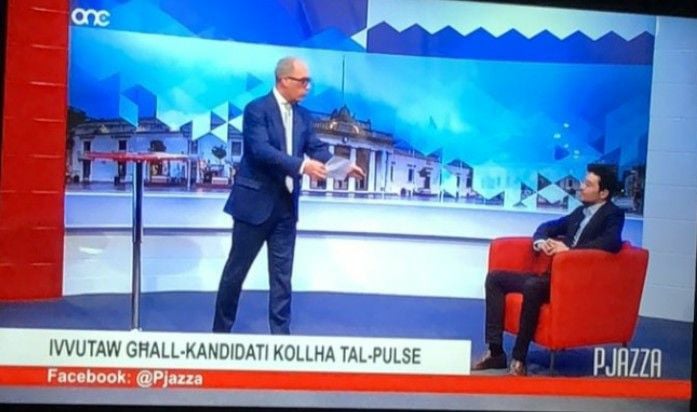The polls are clear. New voters are increasingly disenfranchised and unwilling to vote in elections, let alone engage in the political process. The University of Malta Student Council (KSU) elections may provide an insight into what is keeping students from casting their vote.
In attempts to improve on the 28% turnout in the last round of elections, a proposal was approved to shift the KSU elections from paper ballots to an online system. It is deluded to think that this alone will change anything.
The change will probably make mobilising voters easier. They no longer have to be physically present – students can vote from the comfort of their beds, a café in Zagreb, or midway through a dull lecture, without having to move from their seats. However, there is nothing to suggest that voting for candidates will make students more enthusiastic about picking up a newspaper, let alone participate in policy discussions.
Worse still, it does nothing to mend the decades-long divisions of one party against the other, as though two opposing crime families from 1950s Chicago. If anything, moving the system online against the current backdrop of tribal politics guarantees a win for the much criticised ‘system’; Partisan politics is set to be the ultimate winner for yet another generation.
This week, an infamous episode of ONE’s Pjazza was received with outrage by university students. In it, Labour’s foot soldier Karl Stagno-Navarra indulged Labour-backed student organisation Pulse by encouraging students to blindly block-vote in their favour. If that alone didn’t have enough kick to ruffle some feathers, Stagno-Navarra crassly (and untruthfully) suggested the PN-backed SDM achieved nothing during its long years at the helm of the student council.
In a Facebook reaction, Robert Napier, the current KSU President, condemned the ONE presenter, and attempted to ward off partisan politics from the university. His penultimate sentence was “Let’s leave partisan politics out of University, where it belongs.”
It would be nice to think that the University is non-partisan. The reality is very much the contrary. Rather than pretend otherwise, active, if not radical, changes should be brought to insulate the University of Malta from partisan influences, while concurrently keeping it in touch with the world, to allow for healthy independent growth.
To start off, a realty-check would suffice. Where do student organisations get the money to fund their expensive elections? Should it be the case that candidates need to be backed by thousands of euros to fight for a KSU seat? How is meritocracy ensured if the flashier candidate’s chances could surpass the more capable one?
Answering this question reveals a worrying lacuna of democratic values, particularly lacking in the way candidates are elected. That gap that is instead filled with an anachronistic tribal mentality, evidenced by Pulse’s attendance on Pjazza: “block-vote for Pulse, SDM have done nothing – spread the word.”
Pulse’s financial officer, Clive Aquilina, took to Facebook to criticise SDM for seeking the PN’s support. At the end of his partisan dig, he appealed to his audience to ‘lift the stigma’, without any sense of irony.
As though clarifying anything, Jean Claude Scicluna, who appeared with Karl Stagno Navarro on ONE, expressed his belief in the work of ‘past KSU executives’. He treated his presence on Pjazza as the first of many programs Pulse would be featured on. If this is a balancing act, pretending to show indifference to party-political leanings, it misses the point entirely, as it does not begin to remedy the profound effect left on youth politics. KSU Vice-President Steve Zammit Lupi, in recognising the ramifications of such undue influence, similarly refuted his ‘clarification’.
For the national intellectual elite, the point is that there is no need for partisan leaders to ‘clarify’ ideas. The university should be left to think independently. If political parties are allowed to continue flexing their patronising muscles on campus, free speech will inevitably be stifled.
It has already been made clear that tribal politics, with which Malta’s bipartisan duopoly is synonymous, is unwanted in Malta’s schools. A year ago, Giovanni Curmi Higher Secondary School fought tooth and nail to keep them out. With this in mind, online voting, hailed a ‘milestone’ in student politics, becomes trivial. If Maltese political thought is to ‘transcend partisan politics’, the university must first liberate itself from tribalism.













